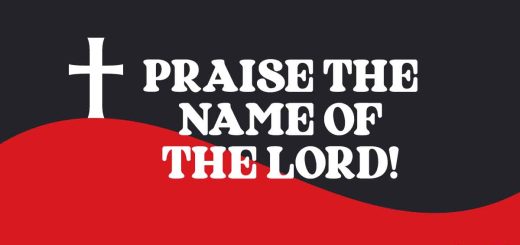What the Church means by ‘freedom’
The important place of freedom in the identity and dignity of a human person in Catholic Social Teachings explains why the Church is concerned when human freedom is violated�because it is the entire person who is violated.

“…, true freedom encourages the growth of a person through the choices he makes that are consistent with the true good. ” (Image courtesy of Exodus international)
But then, what is this freedom that the Church promotes and defends? What does it consist in?
Vatican II�s pastoral constitution Gaudium et Spes refers to freedom in this way: �For God has willed that man remain under the control of his own decisions�so that he can seek his Creator spontaneously, and come freely to utter and blissful perfection through loyalty to him.
Hence, man�s dignity demands that he act according to a knowing and free choice that is personally motivated and prompted from within neither under blind internal impulse nor by mere external pressure� (1037).
In other words, true freedom encourages the growth of a person through the choices he makes that are consistent with the true good.
It is with this understanding that the Church Father Gregory of Nyassa appreciates the responsibility in such personal choices by saying: �Man generates himself, he is father of his own being.� Hence, when someone is robbed of his freedom it is his entire means of growing and realising himself that is robbed. He is dehumanised.
But this freedom is not absolute. A human person has to exercise his freedom by accepting his position as creature.
As John Paul II put it in his 1993 encyclical Veritatis Splendour: �Human freedom finds its authentic and complete fulfilment in accepting the moral law of God.� Consequently, in the true expression of freedom, a person acts in a moral and constructive manner when he is obedient to truth, without pretending to be the master over his life or moral laws.
Pope John Paul continued: �Human freedom belongs to us as creatures; it is a freedom which is given as a gift, one to be received like a seed and to be cultivated responsibly.�
That is why freedom is not a libertinage, since the maturity of human freedom does not lie in �the liberation of the conscience from objective truth, in favour of an alleged autonomy in personal decisions but, on the contrary, by an insistent search for truth and by allowing oneself to be guided by that truth in one�s actions� (Veritatis Splendour).
Natural moral law, the light of the intellect by which we know the good thing to do and the bad thing to avoid, is common to all people�believers and unbelievers equally�and thus relevant to the people of any culture, time and place. There we find true human unity.
Unfortunately, it often happens that in the name of freedom some people impoverish themselves by being closed to the truth.
On the contrary, true freedom is open to truth by which a person comes to appreciate the equal dignity of all people as created in God�s image, thus ruling out any form of discrimination despite whatever differences there may be among people. They all form one single body since in every person radiates the image of God.
That is, as the Compendium of the Social Doctrine of the Church (CSDC) puts it, �the ultimate foundation of the radical equality and brotherhood among all people, regardless of their race, nation, sex, origin, culture�.
Given the social nature of human beings, it means also that the exercise of freedom must take into account others. So it is regrettable that this inborn character of being with others �does not automatically lead to communion among persons […] because of pride, and selfishness, man discovers in himself the seeds of� asocial behaviour , impulses leading him to close himself within his own individuality and to dominate his neighbour� (CSDC).
Therefore we would say with Gaudium et Spes, that �freedom is the highest sign in man of his being made in the divine image and, consequently, is a sign of the sublime dignity of every human person� (17). However, this freedom is not to be conceived solely in the individualistic view like an �arbitrary and uncontrolled exercise of one�s own personal autonomy�. True freedom always exists in reciprocal relationships with others.
Within the limits of common good, freedom permits a person to be able to fulfil himself according to his or her vocation, seek the truth, profess religion, cultural and political ideas and express opinions. This includes also being able to say no to what one judges to be morally wrong.
This is how the Church conceives human freedom. It is inborn and based on the truth of who man really is, according to the will of the Creator.
This is contrary to the notion of freedom as we see it in the world today, where everything is reduced to mere rule of the majority, often without reference whatsoever to the fundamental truth of human existence.
It is here that Christians are called to be prophetic in the way they understand and live certain values so as to avoid a mediocre manner of living that feeds on popular notions that are often devoid of meaning.
- Are Saints Models to Emulate or Little Gods? - February 14, 2022
- Towards an African Pentecost! - June 4, 2017
- A Greek Orthodox Giant of Unity - August 3, 2015




